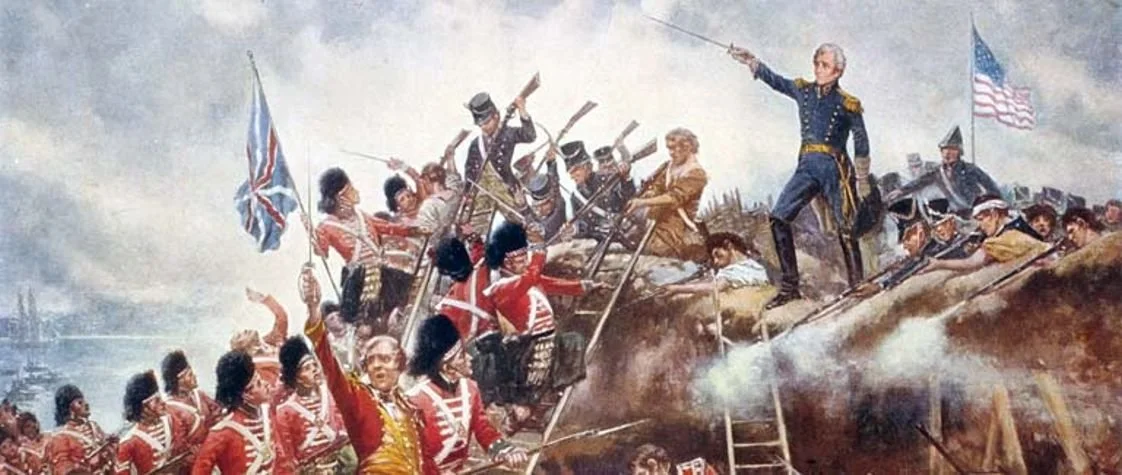
Decision Points: War of 1812 Simulation
Decision Points: War of 1812 Simulation
Objectives:
1. Analyze the causes and motivations of the War of 1812 from multiple perspectives.
2. Understand the political, economic, and social factors influencing decision-making during this period.
3. Engage critically in debate, decision-making, and negotiation by assuming the roles of historical figures.
4. Develop a greater appreciation for the complexities and uncertainties involved in the war's lead-up and unfolding events.
Historical Roles:
James Madison (U.S. President)
Henry Clay (War Hawk Congressman from Kentucky)
Tecumseh (Shawnee Chief and Native American Leader)
William Henry Harrison (Governor of Indiana Territory)
William Eustis (U.S. Secretary of War)
John Randolph (Congressman from Virginia and Anti-War Republican)
George Prevost (British Governor General of Canada)
Albert Gallatin (U.S. Secretary of the Treasury)
John C. Calhoun (Congressman from South Carolina and War Hawk)
Dolley Madison (First Lady of the United States)
Andrew Jackson (Frontiersman and Military Leader)
Scenarios:
Scenario 1 - Debate on War Declaration
Scenario: Congress has convened to discuss British aggressions and Native American alliances with Britain. Students, as their characters, debate whether to declare war.
Debate Focus Questions:
- How should the U.S. respond to British impressment of sailors?
- Should the U.S. align with Native Americans or further its expansion efforts?
- What risks does each action entail for American security and economy?
Scenario 2 - Preparing for War
Scenario: War has been declared. Eustis, Madison, and Gallatin must assess resources while others provide input on strategy. Students discuss troop allocation, priorities, and whether to attack Canada or focus on defense.
Decision Points:
- Should the U.S. focus on offensive or defensive measures?
- How should limited funds and troops be allocated?
- What is the plan for securing borders against Native alliances with the British?
Scenario 3 - Impact of War on Domestic Front
Scenario: The war has not gone smoothly, and morale is low. British forces threaten key cities, and New England considers withdrawing support due to economic impacts. Students representing the administration and Congress must debate how to respond.
Debate Points:
- How should the government respond to New England’s opposition to the war?
- Should diplomacy be reopened with Britain?
- How should leaders address the growing unrest and economic challenges?
Scenarios relating to frontier fighting in the War of 1812 and Andrew Jackson’s Role:
Mobilizing Militia in the South
Scenario: As tensions with the British escalate, Jackson must decide how best to mobilize the Tennessee militia to defend the Gulf Coast. Should he focus on protecting key cities or anticipate British advances by taking the fight to them? How should he respond to the lack of federal support and resources?Native American Alliances
Scenario: Jackson is faced with the challenge of securing the frontier from Native American tribes allied with the British. Should he pursue aggressive action to push these tribes out of contested areas, or attempt to negotiate alliances with tribes willing to side with the Americans? How would each decision impact local settlers and the war effort?Leadership Decisions at New Orleans
Scenario: Leading a diverse force of regulars, militia, and even pirates, Jackson prepares to defend New Orleans against a powerful British force. How should he organize his troops to defend the city, given limited resources and the inexperienced soldiers under his command? Should he rely on defensive tactics, or consider preemptive strikes to destabilize the British forces?Post-War Influence
Scenario: With the war nearing an end, Jackson realizes that his newfound popularity has given him substantial political influence. Should he use this influence to support policies that reinforce American independence and westward expansion, or advocate for veterans and settlers who suffered during the conflict? How should his experience in the war shape his approach to political life?
